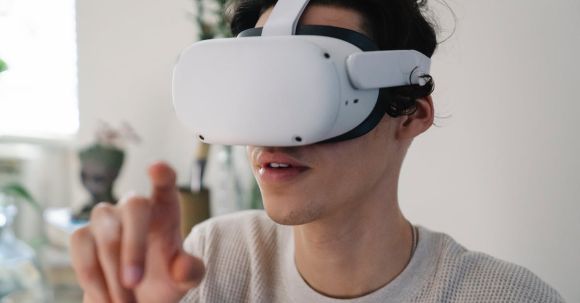Virtual reality (VR) technology has rapidly evolved over the past few years, offering users an immersive and realistic experience in a digital world. From gaming to education, VR has found its way into various industries. One area where VR has the potential to truly revolutionize is travel. Imagine being able to explore the world from the comfort of your own home, stepping into virtual destinations and experiencing them as if you were actually there. With the advancements in VR technology, this is becoming more and more possible. In this article, we will explore how virtual reality can change the way we experience travel.
Virtual Destinations: Transporting You Anywhere
One of the most exciting aspects of VR travel is the ability to visit any destination in the world, without the need for physical travel. With the help of 360-degree videos and virtual tours, users can explore famous landmarks, natural wonders, and even remote locations that would otherwise be inaccessible. Whether it’s walking through the streets of Paris, diving into the Great Barrier Reef, or hiking in the Himalayas, VR allows us to experience these places in a way that was once only a dream.
Immersive Experiences: Engaging All Our Senses
One of the limitations of traditional travel is that it primarily engages our visual sense. However, with VR, we can engage all our senses, creating a more immersive experience. Imagine feeling the warmth of the sun on your face as you stroll through a virtual beach or hearing the bustling sounds of a busy market as you explore a virtual city. VR technology can simulate these sensory experiences, making the virtual travel experience feel incredibly real and enhancing our overall perception of a destination.
Overcoming Physical Limitations: Traveling Without Boundaries
For some individuals, physical limitations or disabilities can prevent them from experiencing the joys of travel. VR can be a game-changer for these individuals, allowing them to explore the world from the comfort of their own homes. Whether it’s someone with mobility issues or a person who is unable to travel due to health concerns, VR can provide a sense of freedom and adventure that would otherwise be unattainable. By breaking down physical barriers, VR enables everyone to embark on a virtual journey and experience the wonders of the world.
Enhancing Pre-trip Planning: Making Informed Decisions
Planning a trip can be a time-consuming process, involving research, booking accommodations, and deciding on itineraries. VR technology can streamline this process by providing users with a realistic preview of their chosen destinations. By virtually exploring hotels, attractions, and neighborhoods, travelers can make more informed decisions and have a better idea of what to expect before embarking on their actual journey. This not only saves time but also minimizes the risk of disappointment or unexpected surprises.
The Future of Travel: A Complement, Not a Replacement
While the potential of VR in travel is immense, it’s important to note that it should be viewed as a complement to physical travel rather than a replacement. The feeling of standing in awe in front of the Eiffel Tower or the taste of authentic street food in Bangkok cannot be replicated by VR. Physical travel offers a deeper connection with the world and allows for spontaneous exploration and human interaction. However, VR can serve as a tool to inspire, educate, and enhance our travel experiences, making them more enriching and accessible.
In conclusion, virtual reality has the potential to change the way we experience travel. From transporting us to any destination in the world to providing immersive and multi-sensory experiences, VR opens up new possibilities for exploration and adventure. It also allows individuals with physical limitations to enjoy the wonders of travel. However, it’s important to remember that VR should complement physical travel, not replace it. By harnessing the power of VR technology, we can enhance our travel experiences and create a world where everyone can embark on a virtual journey of a lifetime.





